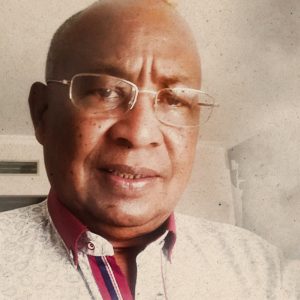Representatives from different trade unions affiliated to the Trade Union Confederation of the Americas (TUCA) stressed their commitment with the struggle for racial equality today. They also expect to ratify this commitment during the 4th Continental Congress to be held by TUCA from 20-23 April.
With the workshop titled “The fight for racial equality in trade unions and the world of labour”, TUCA ended its preparatory workshops ahead of their 4th Congress. This activity was supported by Regional Trade Union FES and the Solidarity Center of the American Federation of Labor and Congress of Industrial Organizations (AFL-CIO).
According to the Economic Commission for Latin America and the Caribbean (CEPAL), there are 134 million Afro-descendant people in the Americas. “Despite representing 21 % of the population in the continent, Afro-descendant people are disproportionately affected by poverty and unemployment due to structural racism,” regretted the trade union confederation.
In a report for Real World Radio right after the end of the workshop, the Chair of the International Relations Office of the Workers Union of Colombia (CUT), Gilberto Martínez, said: “The fight for racial equality is a fight against racism, discrimination, exclusion, xenophobia, and intolerance, which violate the fundamental rights enshrined in the Universal Declaration of Human Rights.”
The trade union leader stressed that “the globalising neoliberal model is the driving force that promotes racism, economic, social and cultural exclusion policies in our continent that particularly affect ethnicities, young people and women.” Moreover, he added that many governments in the Americas “fail to establish laws and regulations capable of ensuring and protecting” fundamental rights and that instead aim to “increase social and racial inequality.”
During the 4th workshop, the representative of the Solidarity Center, Alexis De Simone, who spoke after the Secretary General of TUCA, Rafael Freire, highlighted that “black lives matter” should be the basis of union action.
Meanwhile, Fred Redmond from AFL-CIO ensured that humanity is facing two pandemics: COVID-19 and endemic racism. He urged to recognise and repair historical colonialism.
Moreover, the National Secretary of Racial Equality at the Workers Union of Brazil (CUT), Anatalina Lourenço, said that a full democracy and citizenship is not possible with racism. The working class cannot be separated from its gender or ethnicity, she said, and ensured that the demand for better conditions for the working class includes talking about the living conditions of black people, which should be built in alliance with other social movements.
Anatalina shared her presentation with Rosana Fernandes, Deputy Secretary for the Fight against Racism from CUT Brazil, who warned that it is urgent to stop normalising racism, and stop assuming that the violence against black women is normal. She explained that racism and misogyny are structural oppressors and that trade unionism in the Americas will keep up the fight for racial equality.
Also from Brazil, the chair of the General Workers Union (UGT), Ricardo Patah, said that this trade union is fighting against racism through the fight against the pay gap experienced by black people and the systematic violence against them. Patah announced that UGT developed a quota agreement for black people in the commercial sector and that on 1 May, International Workers Day, they will march against racism in Sao Paulo city.
Meanwhile, the Deputy Secretary General of the Workers Confederation of Haiti (CTH), Marie Louise Louimarre Lebrun, denounced that her country is under a dictatorial regime, suffering violations, massacres, kidnappings and that trade unions continue warning about the attacks against economic justice and reaffirming the history of solidarity of the Haitian people and the fight against slavery.
Finally, Toni Moore, deputy Secretary General of TUCA, who acted as facilitator during the workshop, highlighted that racism has been present in the darkest moments of our history, and it still exists, sometimes in a more or less clear way. She denounced that the problem is not just discrimination, but the structures and systems that maintain cultural inequality and racism. This happens in the world of labour and still persists in trade union structures, said Moore, although she added that TUCA has advanced and will continue advancing in the fight against these practices.
